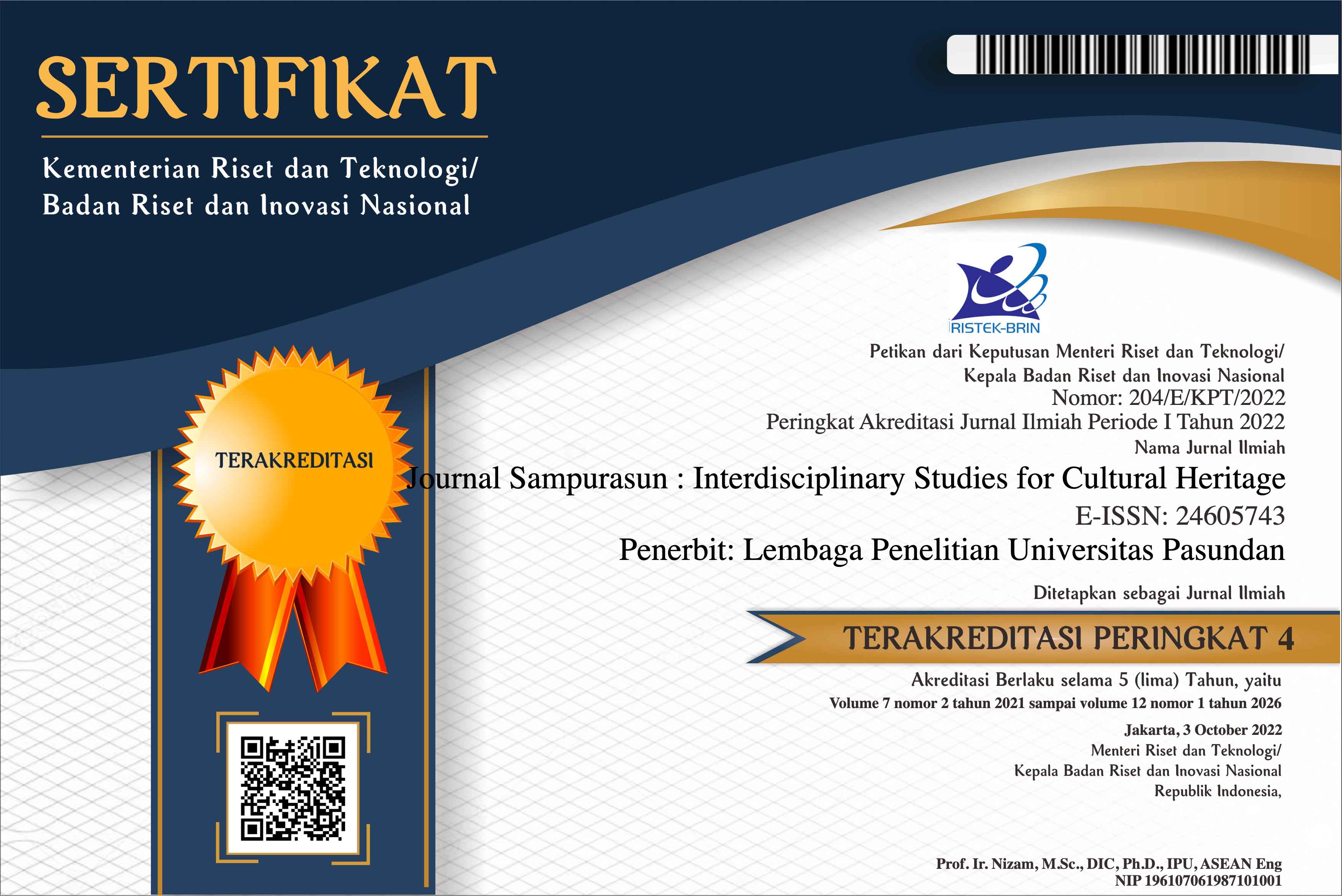The Influence of Organizational Communication to Employee Performance of Administrative Assistant for Economic and Development Secretariat of Bandung
DOI:
https://doi.org/10.23969/sampurasun.v4i01.428Keywords:
Public Administration, Public Policy, Organizational Communication, PerformanceAbstract
The research was conducted to analyze the influence of Organizational Communication to employee performance, develop theories and concepts of Organizational Communication and performance along with its aspects and apply the theory of Organizational Communication in solving the problems of employee performance of Administrative Assistant for Economic Affairs and Development of Regional Secretariat in Bandung. This research applies explanatory survey method with a quantitative approach. The variables are consisted of Organizational Communication (X) and Employee Performance (Y). Communication organization consists of the main forms of communication-down (X1), upward communication (X2) and horizontal communication (X3). They are very strong in the performance of employees that derives from dimensions in quantity of work, quality of work, job knowledge, creativeness, cooperation dependability, initiative and personal quantity. The sample is taken by using census techniques. The respondents are the employees of the Administrative Assistant for Economic and Regional Development Secretariat of Bandung as many as 112 employees. The technique of data analysis uses path Analyisis. The data are analyzed quantitatively by using statistical correlation and path analysis with SPSS 21 to see the value of the standard Beta regression test results. The result showed that communication of organizational influences the performance of employees in the Administrative Assistant for Economic and Regional Development Secretariat in Bandung is determined by the primary form of communication downward, upward communication and horizontal communication which are acceptable. Organizational Communication simultaneous influence on employee performance with a total effect of 58.6%, while the remaining 41.4% is influenced by other variables was not examined. Partially downward communication, upward communication and horizontal communication affected the performance of employees with a total effect of respectively 49.2%, 7.6% and 1.72%.
Downloads
References
Alamsyah, Kamal, 2005. Public Administration in Perspective Theory and Practice. Bandung: Pasundan University.
Dharma, Agus. 2001. Supervision of Management, Jakarta: Raja Bupati Tekan
Gomes, F.C. 2003. Human Resource Management. Andi: Yogyakarta
Itang Safa'at 2006. The influence of communication on Productivity Organisation of Employee on the Department of Industry and Trade of Sumedang.
Mangkunegara, Anwar Prabu. 2005. Human Sumer Management Company. Bandung PT. Remaja Rosda Karya.
Muhammad. Arni. 2011. Organisation of Communication. Jakarta: Bumi Aksara.
Notoatmodjo, S. 2003. Human Resource Development. Jakarta: Rineka Cipta
Purwanto E.A. Dan Sulistiyastuti, 2007. Quantitative Methods of Research. Yogyakarta: Penerbit Gava Media
Soetopo, 2010. Organizational behavior. Bandung: Remaja Rosda Karya.
Sugiyono. 2008. Administration Methods of Research. Bandung: PT. Alfabeta
Sutarto, 2006. Fundamentals of the Organization. Bandung :Remaja Rosda Karya.
Downloads
Published
Issue
Section
License
Copyright Notice
Authors should not withdraw their submitted papers because the withdrawal wastes voluntary works devoted by an associate editor and reviewers. But, we accept the withdrawal of a submitted paper if authors have unavoidable reasons. In the event that a manuscript is to be withdrawn from submission to Sampurasun Journal, a letter must be sent to the editorial office requesting withdrawal by e-mail (sampurasunjournal@unpas.ac.id) with its scanned PDF file, before the notification of acceptance for publication.
The withdraw request letter must include the following information. Paper ID, Paper title, Authors names, Reason why the paper must be withdrawn, and Date and signatures of all the authors (or signature of the contact author).
If only the contact author signs the letter, he/she must obtain the agreement of the withdrawal from all the other authors and the letter must include the description that all the other authors agreed the withdrawal. The journal will not withdraw a manuscript from peer review until such a letter has been received. Authors must not assume their manuscript has been withdrawn until they have received appropriate notification from the editorial office. Withdrawal of a manuscript subsequent to acceptance for publication will only be granted in the most exceptional of circumstances.
After the paper is accepted for publication, the withdrawal is not permitted in principle. The authors must always pay the charge even if the withdrawal is permitted. Any request of withdrawal that does not follow the above procedure is treated as invalid. If illegal submission, e.g., plagiarized or duplicate submission, is found for a paper, the withdrawal of the paper will never be permitted and the authors will be punished based on the rule. It is not acceptable practice to withdraw a manuscript in the event of acceptance at another journal. This constitutes dual submission. The editorial office of the other journal will be notified of your actions. In such circumstances Sampurasun ISCH may chose to impose appropriate punitive action subject.
Withdrawal Penalty
Author is not allowed to withdraw submitted manuscripts, because the withdrawal is waste of valuable resources that editors and referees spent a great deal of time processing submitted manuscript, money and works invested by the publisher. If author still requests withdrawal of his/her manuscript when the manuscript is still in the peer-reviewing process, author will be punished with paying $200 per manuscript, as withdrawal penalty to the publisher. However, it is unethical to withdraw a submitted manuscript from one journal if accepted by another journal. The withdrawal of manuscript after the manuscript is accepted for publication, author will be punished by paying US$500 per manuscript. Withdrawal of manuscript is only allowed after withdrawal penalty has been fully paid to the Publisher. If author don't agree to pay the penalty, the author and his/her affiliation will be blacklisted for publication in this journal. Even, his/her previously published articles will be removed from our online system.


















